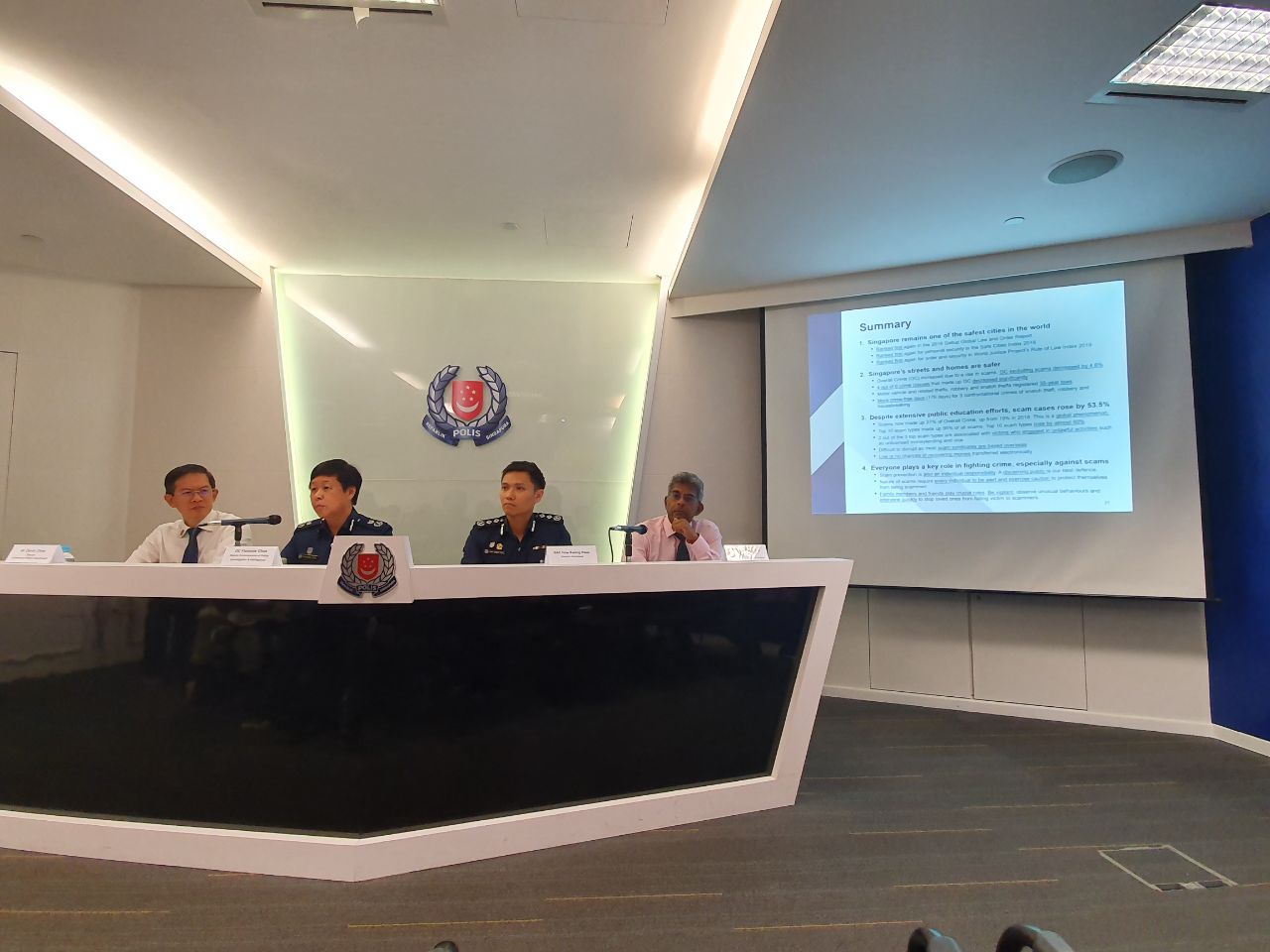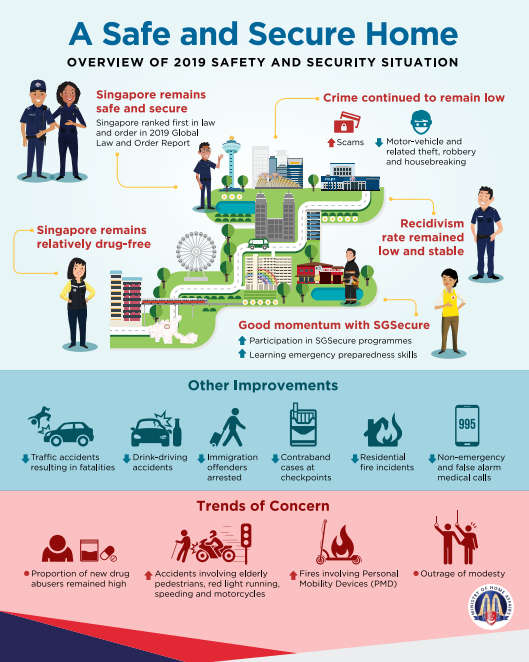A significant increase in scams is the main driver behind a rise in Singapore's overall crime rate and total number of reported cases in 2019.
Singapore's overall crime rate rose by 6.3 per cent from 33,126 cases in 2018 to 35,209 cases in 2019, but if scam cases were excluded, this figure would actually see a drop of 4.6 per cent, according to figures from Singapore Police Force's (SPF) Annual Crime Brief released Wednesday, Feb. 5.
The nature of crime has shifted from confrontational crime, such as theft and robbery, to crimes made in cyberspace.
E-commerce scams remain the top scam in S'pore
The total number of scam cases reported to the police rose by a hefty 53.5 per cent year on year, from 6,189 cases in 2018 to 9,502 cases in 2019.
Correspondingly, more money was lost to scammers in 2019 as compared to 2018.
The total amount cheated in the top 10 types of scam, such as e-commerce scams, increased by 16 per cent from S$144.9 million in 2018 to S$168.1 million in 2019.
Of the top 10 types of scams reported, e-commerce scams remain the top scam type, with the highest number of cases (2,809) reported in 2019.
Both loan scams and credit-for-sex scams increased significantly in 2019 from 2018 as well.
More traditional crimes hit 35-year low
SPF pointed out that this shift in criminal activity type is evidenced also by the fact that motor vehicle and related thefts, robbery and snatch thefts reported dropped to a 35-year low in 2019.
Each theft type saw drops in between 22 and 29 per cent in the number of cases reported last year, with 179 days of the year being free of snatch theft, robbery and housebreaking.
SPF also noted that four out of the six crime classes that make up overall crime in 2019 fell sharply as compared to 2018.
For instance, crimes against persons fell by 12.2 per cent from 5,031 cases in 2018 to 4,419 cases in 2019, while violent or serious property crimes decreased by 26.2 per cent from 210 cases in 2018 to 155 cases in 2019.
Also, housebreaking and related crimes fell by 14.9 per cent from 328 cases in 2018 to 279 cases in 2019, while theft and related cases fell by 8 per cent from 12,196 cases in 2018 to 11,215 cases in 2019.
Outrage of modesty, loanshark harassment continue to be areas of concern
Even though outrage of modesty and molest cases have seen a dip of 5.6 per cent in 2019 to 1,632 cases (versus 1,728 in 2018), SPF highlighted the high number of reported cases as an area of concern.
In particular, reports of outrage of modesty at shopping malls went up by 14.7 per cent last year to 125, from 109 in 2018. In response to this, police said it will step up its patrols at malls and work with stakeholders, also urging victims of outrage of modesty or molest to report their cases to the police as soon as they can to help with quick identification and arrest of the perpetrators.
SPF's measures to combat scams
The police also reported an update to its efforts in combating scams.
Its Anti-Scam Centre (ASC) set up in the middle of last year has investigated some 3,312 reports involving total losses of S$10.6 million since its formation.
The ASC has also frozen 2,600 bank accounts and recovered S$3.7 million, 35 per cent of the amount scammed.
Apart from its Scam Alert website, the National Crime Prevention Council also runs an anti-scam hotline (1800-722-6688) that the public can call to ascertain if they are being scammed.
It received more calls as well in 2019 — 333 as compared to 180 per month on average in 2018.
SPF also worked with local e-commerce sites like Carousell to set up escrow features, remove suspicious listings and include scam advisories to protect against scams.
These efforts paid off when the number of Carousell scam cases fell slightly from 1,519 cases in 2018 to 1,239 cases in 2019.
Still first in law and order in global reports
As more crimes migrate online, Singapore's streets have become safer.
SPF cited the results of the 2019 Gallup Global Law and Order Report as well, which ranked Singapore first in law and order, ahead of Norway, Switzerland and Finland.
 Image by Rexanne Yap
Image by Rexanne Yap
The report showed that 94 per cent of residents in Singapore felt safe walking home alone in their neighbourhood at night.
In addition, both the World Justice Project's Rule of Law Index 2019 and the Economist Intelligence Unit Safe Cities index 2019 ranked Singapore first for order and security, as well as for personal security respectively.
Cool.
Here's a summary of the overall crime situation in a police-provided infographic:
 Infographic via SPF
Infographic via SPF
Top photos by John Schnobrich/Unsplash and Rexanne Yap
If you like what you read, follow us on Facebook, Instagram, Twitter and Telegram to get the latest updates.
